Hartford Bat Removal
Welcome to Hartford Bat Removal! We are Connecticut bat removal specialists. It is important to know that bats are protected by Connecticut law, and are beneficial animals to have in the environment. We do not kill any bats during our bat removal process. Never hire a pest control company or anyone who says they are a Hartford bat exterminator. For correct and effective bat removal, you want a company that specializes in humane bat colony extraction. Our process is not only the only legal method in Connecticut, but it is the most effective. We have a 100% success rate in our bat control process. We perform our industry-best 32-point inspection of your house or building, and seal shut all bat entry holes down to 1/4 inch as part of the removal process, during which we remove the colony via special one-way exclusion devices specific to your architecture. Once all bats are safely out, we permanenetly bat-proof the structure. We also provide guano (bat droppings) removal and decon. Click on our Hartford Bat Control Prices page to find out more about our prices for bat control work. We work 24/7/365, and would love to talk to you about your bat problem. Call us any time at 860-266-2011 to discuss it, discuss our pricing, and if you wish, set up an appointment at your convenience, often same-day.
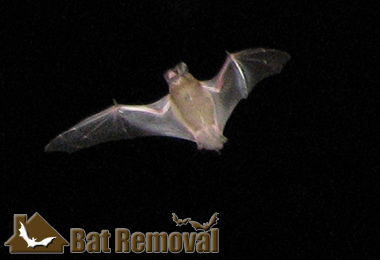
Hartford Building and Attic Inspections
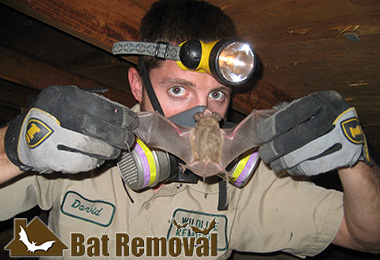
No-kill Connecticut Bat Extraction
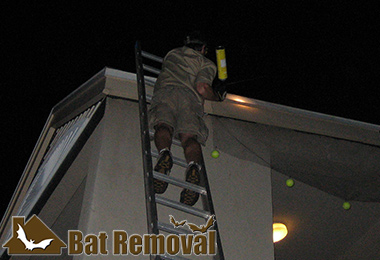
Guano Cleanouts - Serving all of Connecticut
Call 24/7 to discuss your bat problem.
Same-day or next-day appointments.
32-point inspection of your property.
Written estimates for bat removal project.
Fully state licensed and insured.
Residential and commercial service
100% no-kill Hartford bat extraction
Complete bat-proofing of your building
Compliance with all Connecticut, federal laws
Guano removal and attic decontamination
Our Service Range - 860-266-2011
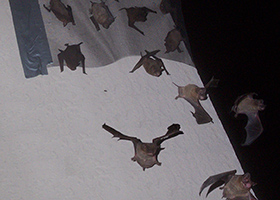
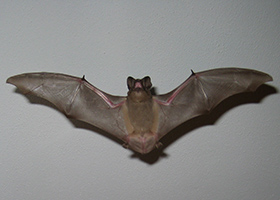
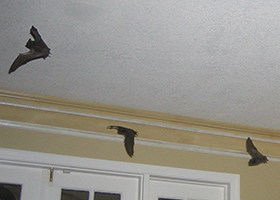
3 Legal Things That You Need to Be Aware of Before Conducting Bat Removal
It is not surprising why bats are one of the most misunderstood creatures. They have been depicted as blood sucking creatures by the mainstream media. However, the bats can deliver a range of benefits. They play a critical role in maintaining the balance of our ecosystem. There are bats that are pollinator and their guano can keep the soil fertile. Most species of bats can eat large number of insects per day. No pesticides can match the efficiency of bats when it comes to controlling the insect population.
Is it Legal to Capture Bats?
Due to habitat degradation, urbanization, illnesses, and human intervention, population of some bat species have suffered dramatically. Some of them belong in the list of endangered species and species of concern. Before you attempt to trap the bat in your house, you will need to know if this belongs in the federal list.
1. Legal Status of the Bats
The 1956 Coordination Act of Fish and Wildlife together with the 1973 Endangered species act states that there are 6 bats that belong in the endangered list. This include the gray bats and Indiana bats just to name a few. The federal regulations are not only protecting the bats. It also states that you are not allowed to disturb the roosting place of the bats. Any mines and caves that the bats are using as roosting place should be left alone. There are also species of concern that are being protected in the state. The regulation concerning bats can vary depending on the state where you live. You can call your local wildlife department to be aware on the implementing rules on trapping bats.
There are also international regulations that aim to protect the bats from total extinction. For instance, in UK, it is illegal to kill, injure, or possess any species of bats. Just like our federal law, they also protect the natural habitat of the poor creature. Any individuals who have been proven to violate the laws will be subjected to 6 months imprisonment and expensive fines.
2. Existing State Laws Protecting the Bats
As aforementioned, there are state laws that protect the bats. Some of the state with strict rules on trapping bats include Maryland, West Virginia, and Oklahoma. On the other hand, Florida and Connecticut limits their protection to those that are included in the federal list. Colorado have enacted law about bats and the heath of the public. Though the bats are not usual carrier of rabies, they are the considered primary carrier of rabies in Illinois. Their bat guano will also expose homeowners to potential health risks.
3. Additional Regulation
Most of the state and municipality will require permit and license before you can legally operate as a bat removal specialist. There are extra permits that you need to secure when excluding endangered species. Other states such as Kentucky will not permit the rehabilitators to rescue creatures that are vector of rabies. It is also illegal to collect the carcass of the bat.
In order to keep away from any legal issue, you will need to be familiar on the laws that protects the bats. Bats can be beneficial especially on agricultural setting, the laws are meant to ensure that we will continue to experience their benefits.

